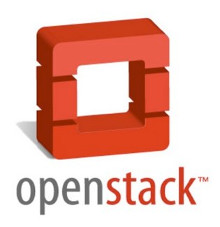Icehouse: New OpenStack cloud arrives

OpenStack, an extremely popular open source Infrastructure as a Service (IaaS) cloud program, has just released its latest version: Icehouse. According to the OpenStack Foundation, the ninth release of OpenStack comes "with new features reflecting a community-wide effort to bring the voice of the user into the rapidly maturing open source cloud software platform."

This is a major release that includes many minor improvements and new features. Perhaps the most welcome for OpenStack administrators is that you can finally do "rolling upgrades in OpenStack Compute (Nova). Rolling upgrades simplify the process of upgrading to new versions of the OpenStack software by not requiring virtual machine (VM) instances to be shut down in order for upgrades to install." This has been a major annoyance for companies deploying OpenStack in business environments where downtime equals lower profits.
"Everyone we talk to wants cloud resources that let them move faster," said Jonathan Bryce, executive director of the OpenStack Foundation. "The evolving maturation and refinement that we see in Icehouse make it possible for OpenStack users to support application developers with the services they need to develop, deploy, and iterate on apps at the speeds they need to remain competitive."
Approximately 350 new features and 2,902 bug fixes were added this time. The main focus was on testing, maturity, and stability. In addition, third-party continuous integration (CI) has resulted in 53 external systems testing OpenStack compatibility across broad sets of hardware and software configurations.
AR + VR
Among the approximately 350 new features added are a new program, OpenStack Database Service, Trove, which was incubated during the Havana release cycle and is now available in the Icehouse release. Programs in incubation include OpenStack Bare Metal (Ironic), OpenStack Messaging (Marconi), and OpenStack Data Processing (Sahara).
New Icehouse features include:
- OpenStack Compute (Nova): New support for rolling upgrades minimizes the impact to running workloads during the upgrade process. Testing requirements for third-party drivers have become more stringent, and scheduler performance is improved. Other enhancements include improved boot process reliability across platform services, new features exposed to end users via API updates (e.g., target machines by affinity) and more efficient access to the data layer to improve performance, especially at scale.
- OpenStack Object Storage (Swift): A major new feature is discoverability, which dramatically improves workflows and saves time by allowing users to ask any Object Storage cloud what capabilities are available via API call. A new replication process significantly improves performance, with the introduction of Ssync to more efficiently transport data.
- OpenStack Block Storage (Cinder): Enhancements have been added for backend migration with tiered storage environments, allowing for performance management in heterogeneous environments. Mandatory testing for external drivers now ensures a consistent user experience across storage platforms, and fully distributed services improve scalability.
- OpenStack Networking (Neutron): Tighter integration with OpenStack Compute improves performance of provisioning actions as well as consistency with bulk instance creation. Better functional testing for actions that require coordination between multiple services and third-party driver testing ensure consistency and reliability across network implementations.
- OpenStack Identity Service (Keystone): First iteration of federated authentication is now supported allowing users to access private and public OpenStack clouds with the same credentials.
- OpenStack Orchestration (Heat): Automated scaling of additional resources across the platform, including compute, storage, and networking is now available. A new configuration API brings more lifecycle management for applications, and new capabilities are available to end-users that were previously limited to cloud administrators. Collaboration with OASIS resulted in the TOSCA Simple Profile in YAML v1.0, demonstrating how the feedback and expertise of hands-on OpenStack developers can dramatically improve the applicability of standards.
- OpenStack Telemetry (Ceilometer): Improved access to metering data used for automated actions or billing/chargeback purposes.
- OpenStack Dashboard (Horizon): Design is updated with new navigation and user experience improvements (e.g., in-line editing). The Dashboard is now available in 16 languages, including German, Serbian, and Hindi.
Like the releases before it, Icehouse has attracted more contributors. The Icehouse release had 1,202 contributors, a 32-percent increase from the Havana release six months ago. Corporate support has also grown during this development cycle. Top companies contributing to this release were Red Hat, IBM, HP, Rackspace, Mirantis, SUSE, OpenStack Foundation, eNovance, VMware and Intel.
What does all this amount to? Forrester Research analyst Lauren E. Nelson, the research house's private infrastructure-as-a-service (IaaS) cloud lead, believes that "OpenStack has crossed the threshold and will become another de facto IaaS standard before the end of the year , when OpenStack compatibility will be a must, not a nice-to-have." She's right.
To see the dashboard demo, detailed release notes and download the source code for yourself visit the OpenStack Icehouse site
Related Stories: